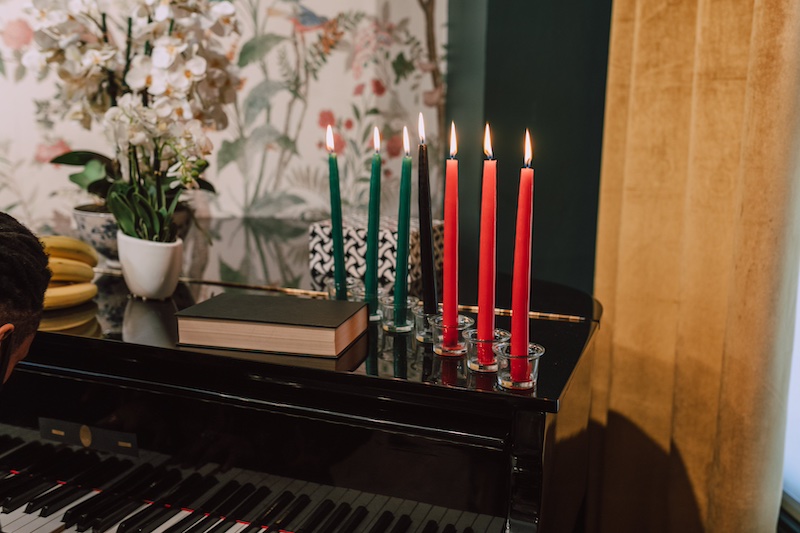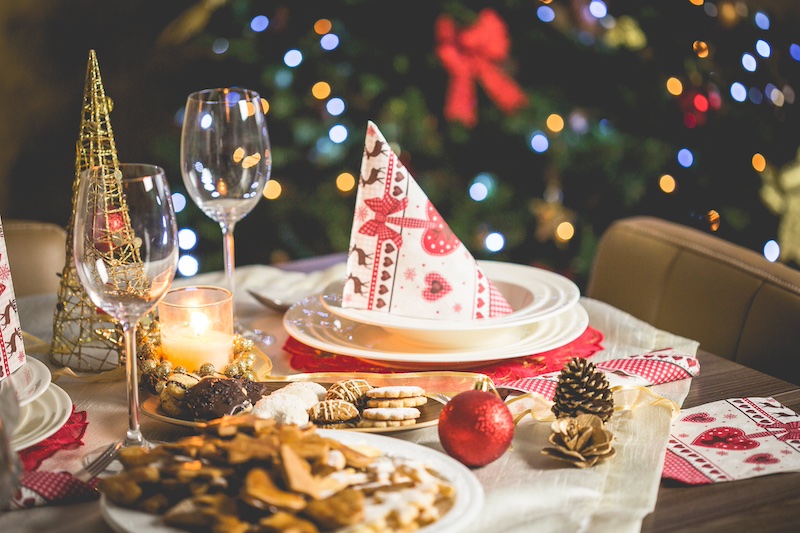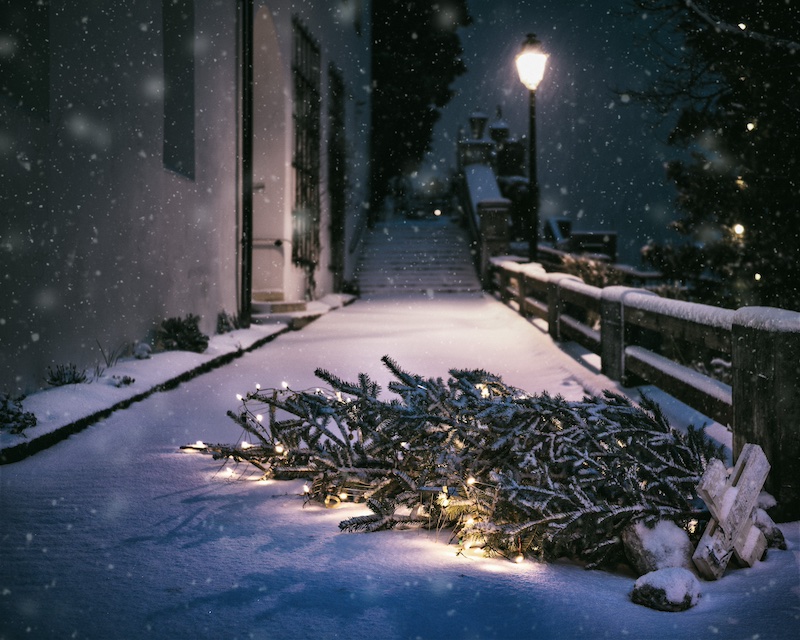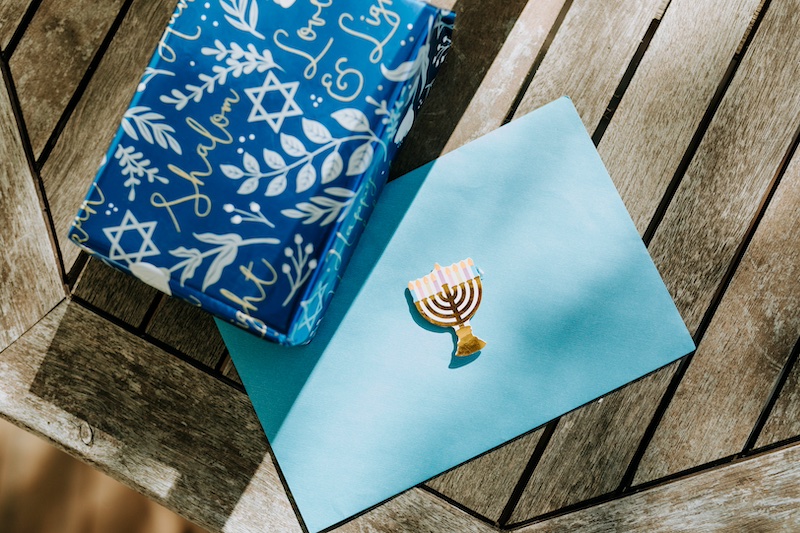Holiday Safety Tips for Tenants
How to celebrate in style, without any mishaps.

How to celebrate in style, without any mishaps.

There’s a lot to love about the holidays. From parties to presents to quality time with loved ones, ’tis the season for some of the best things that life has to offer.
But, unfortunately, ’tis also the season for a number of risks, like stolen presents, frightful weather, and decoration-induced fires, among other potential safety hazards.
In this article, we’ll guide you through how to avoid some of these risks, and explain how your renters policy can protect you if something does happen over the holiday season.

Holiday decorations are the ultimate way to spread good cheer. However, they can also be really good at spreading other things…like fires.
From 2016 to 2018, 100 fires caused by Christmas trees and 1,000 fires caused by candles were reported in the U.S. in the months of November and December.
And fires aren’t the only risks associated with decorating–the holidays also see an uptick in injuries from falls. Let’s break down some of the dangers of decking the halls, and what you can do to keep your festive home safe over the holidays.
According to the National Fire Protection Association, fires caused by candles peak in December and January. Remember that Menorah candles, Kwanzaa kinara, and other holiday candles all pose risks to your home. Follow these tips to keep your holiday celebration lit but still short of being, you know, actually ablaze.
Of course, even if you take all of the precautions, accidents may still happen. Fortunately, your renters insurance has your back should a decorating disaster trigger a fire or other named peril.
Let’s say a lit candle catches on a nearby curtain, causing a minor fire to break out in your living room. In this case, your renters insurance would reimburse you for any resulting fire or smoke damages to your stuff.
And, if the fire weren’t so minor and prevented you from living in your apartment for a short period of time, your loss of use coverage might even kick in to provide temporary housing and meals while the repairs are underway.

Obviously, you’re gonna wanna host a banger. And you should! Just make sure that you plan one with your guests’ safety top of mind.
(And, on a less festive note, the right party safety protocol could also protect you from a costly personal liability claim if a guest were to get injured on your property.)
Here are some general tips for safe holiday hosting:
Christmas trees and candles are certainly dangerous, but cooking fires still account for around 50% of all home fires in the U.S.
Before cooking for your guests, make sure that you’re fully up to speed on how to stay safe in the kitchen.
As you prepare your holiday feast, always keep a fire extinguisher on hand. And If you’re hosting a Thanksgiving gathering and opting for a trendy deep-fried turkey, make sure to do the deep-frying outside.

The weather these days is unpredictable. It’s hard to know if the holiday season will bring in a balmy slew of 60-degree days or a bomb cyclone.
Still, should the weather turn out to be frightful, you’ll want to be prepared.
Follow these tips to protect your home from any cold-related mishaps:

Theft is a problem year-round, but you should be on especially high alert over the holidays. Whether it’s the influx of packages landing on your doorstep or your invitingly empty home, the holiday season is a burglar’s paradise.
Follow these tips to protect your stuff during the most wonderful time of the year:
If you do fall victim to holiday theft, you can at least take solace in the fact that theft is generally covered by your renters policy.
Yes, you’re covered for theft, whether your stuff is stolen from your home or from wherever you’re traveling. So if a thief absconds with your designer luggage and everything inside it before you can claim it at the baggage carousel, your renters policy would likely still compensate you for the stolen stuff.
Yes, your decorations are protected by your policy’s personal property coverage, which generally protects against theft and vandalism. In the event that someone makes off with your splashy new outdoor light display, your renters insurance would probably cover the costs, minus your deductible. However, it also depends on the value of your stuff: if you lose, say, $200 worth of decorations and your deductible is $250, then you would have to pay for the costs out of pocket.
It depends on the cause of the damage, but renters insurance generally does not cover structural damages to your rental building itself, which should be covered by your building’s insurance policy. However, there are some cases where your renters’ personal liability coverage might help you out. For instance, if you accidentally started a fire with your holiday candles, damaging your landlord’s property, then your personal liability coverage could potentially cover you. But, in this case, your policy would only cover you if the damages to the building were caused by fire, smoke, or an explosion. It wouldn’t kick in, for example, if your decorations were to chip away at the paint on the walls of your rental property.
Yes, you can add an endorsement to your renters policy to schedule high-value items. Should you find yourself swept off your feet by a romantic holiday proposal, for instance, you would be able to purchase Extra Coverage to protect your engagement ring. In addition to allowing you to insure your stuff at a higher dollar amount, EC protects expensive items from additional perils not covered by your regular policy like mysterious loss and accidental damage. Just head to the Lemonade app and tap the Extra Coverage button to get started.
The holiday season can pose several safety risks, but, thankfully, your renters insurance has you covered in a number of less-than-jolly scenarios.
To ensure that your stuff is protected throughout the holiday season and into the new year, sign up for Lemonade renters insurance. Or, if you’ve been fortunate enough to have received some expensive new presents, consider updating your coverage.
A few quick additional words, because we <3 our lawyers: This post is general in nature, and any statement in it doesn’t alter the terms, conditions, exclusions, or limitations of policies issued by Lemonade, which differ according to your state of residence. You’re encouraged to discuss your specific circumstances with your own professional advisors. The purpose of this post is merely to provide you with info and insights you can use to make such discussions more productive! Naturally, all comments by, or references to, third parties represent their own views, and Lemonade assumes no responsibility for them. Coverage may not be available in all states.
Please note: Lemonade articles and other editorial content are meant for educational purposes only, and should not be relied upon instead of professional legal, insurance or financial advice. The content of these educational articles does not alter the terms, conditions, exclusions, or limitations of policies issued by Lemonade, which differ according to your state of residence. While we regularly review previously published content to ensure it is accurate and up-to-date, there may be instances in which legal conditions or policy details have changed since publication. Any hypothetical examples used in Lemonade editorial content are purely expositional. Hypothetical examples do not alter or bind Lemonade to any application of your insurance policy to the particular facts and circumstances of any actual claim.